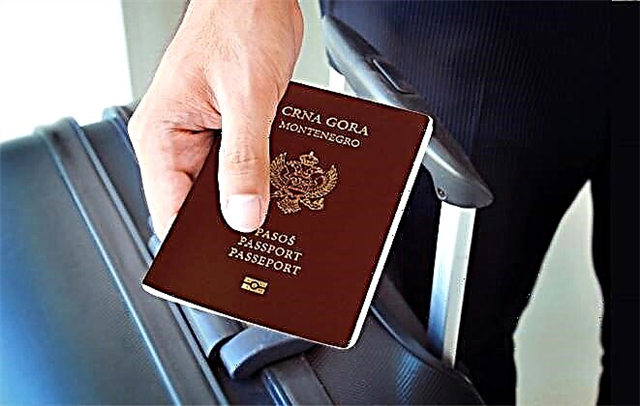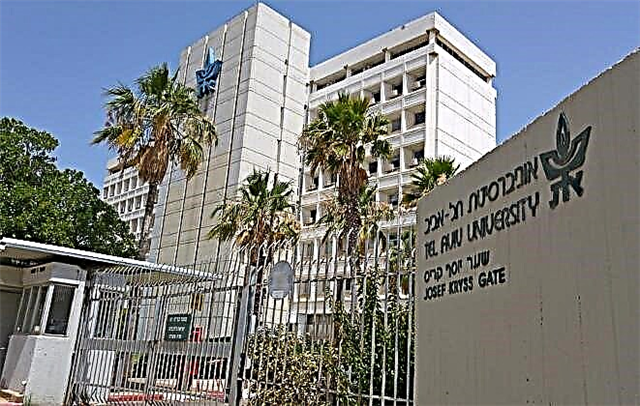The Israeli higher education system was formed on the basis of the American model and today it is one of the youngest, but rather developed and progressive systems in the world. Some universities in Israel began their activities even before the state itself was formed, and today they occupy leading positions in world rankings of educational institutions.

How the Israeli educational system works
The education of the younger generation in Israel takes place in several stages:
- preschool education;
- school;
- higher.
It is possible to enroll a child in a nursery from three months. But this will cost the family a certain budget, since free attendance at a preschool is possible only from the age of 3.
Due to the great demand for kindergartens, many varieties of them have appeared in the country, ranging from an extended day group (for children whose parents work), to a full-fledged kindergarten and summer institutions where children are temporarily staying during the holidays.
The Israeli school is divided into three stages:
- primary - from 1st to 6th grades (children 6-12 years old);
- middle - from 7th to 9th grades (12-15 years old);
- senior - from 10th to 12th grades (15-18 years old).
The educational system in Israel does not oblige children after the 9th grade to continue their education in school. They can go to college or complete the educational process.
Admission to a university requires a certificate of completion of all 12 classes. At the university, training is also divided into stages: bachelor's, master's, doctoral studies.
The most demanded are diplomas in the following areas:
- management,
- information Technology,
- economy,
- natural Sciences,
- psychology,
- engineering,
- medicine.
Education in Israeli universities is possible only on a paid basis: for Jews, and for those who are undergoing the repatriation program, and for foreign citizens.
Structure of Israeli universities
In total, there are 9 state universities operating in the country. Israeli universities differ from all other types of educational institutions in that they conduct large-scale research work. This attracts not only students, but also scientists.
Most often, a higher educational institution trains specialists in all areas (technical, humanitarian, scientific). But there are also those that have a narrow focus (for example, the Technion or the Weizmann Institute).
In addition to state universities, there are 150 colleges, academies and business schools in the country. Their main difference is the different opportunities for awarding scientific degrees.
- Thus, you can get a bachelor's degree in all universities (except for the Weizmann Institute) and in almost all academies and colleges.
- The master's degree is available only in some colleges and in all universities.
- Doctoral studies can only be completed at universities, with the exception of the Open University and Ariel.
- Business schools provide the opportunity to take an enhanced course in the practice and theory that entrepreneurs need to run their business. Graduation from a business school presupposes the defense of scientific work and obtaining an MBA diploma.
How to become a student of an Israeli university
Those foreigners who have come from abroad and want to know how to enter the University of Israel should remember that a high school diploma or college diploma will not be enough. You will have to take preparatory courses, the program of which includes the history of Israel, English and, most often, Hebrew. At the same time, candidates prepare for the psychometric test, which is mandatory for all applicants.
The main task of the test is to check the knowledge of Hebrew and English, to assess the quantitative and verbal thinking of the future student. Those who choose a technical major will have to pass an exam in physics and mathematics.
Creative applicants must submit a portfolio and pass a screening or audition. Only Israelis or persons with Jewish roots can become medical students.

From the documents you will need:
- Copy of the passport.
- Photo.
- Receipt with paid registration fee.
- Psychometric test results.
- A copy of the document on the existing education.
All papers drawn up in a foreign language must be translated into Hebrew and certified by a notary. After receiving confirmation from the university, you must contact the consulate to apply for a student visa.
Leading universities in the country
The activities of higher education institutions are supervised by the Council for Higher Education. The ranking of universities in Israel, compiled by the Ministry of Education of the country, will allow you to choose the best educational institution.
The term of study in each of the listed universities depends on the level and on the chosen specialty:
- Undergraduate degree - 3 years at university or 4 years at college.
- Master's degree - 2-3 years.
- Doctoral studies - 2-4 years.
Hebrew University (Jerusalem)
The Hebrew University ranks first in popularity in the country. This is one of the largest educational centers and research institutes in the country, it is included in the top 100 leaders in the system of higher education in the world.
The date of foundation of the university is 1918, although it was officially opened and accepted the first students only in 1925. The idea of creating an educational institution belonged to the activists of the international Zionist organization, who intended to establish the first higher school in the Palestinian territory.
The Hebrew University of Jerusalem is also known for the fact that the very first lecture in it was delivered by the famous Albert Einstein. Today, here you can get a specialty in the following areas:
- humanities and social sciences;
- right;
- mathematics and natural sciences;
- agriculture, environment and food;
- medicine;
- dentistry.
At the university, higher schools operate on the rights of faculties, which issue diplomas in the following specialties:
- management;
- computer technology and engineering;
- social work;
- public health;
- pedagogy;
- pharmacology;
- ecology;
- veterinary medicine.
The best faculties at the Hebrew University are in the humanities: anthropology, psychology, and linguistics. The second place in terms of academic reputation is occupied by the Faculty of Forestry, followed by mathematics, information technology and statistics.
On the basis of this university, 40% of all scientific developments in the country are carried out. The Faculty of Jewish Studies enjoys great prestige, which is due to the history of the creation of the university.
Jerusalem University teaches about 17 thousand students, 4% of whom are foreigners. It also has student dormitories, makes it possible to study remotely, and participates in exchange programs.
Tuition fees (in US dollars):
| Undergraduate | Master's degree | |
|---|---|---|
| For citizens | 5,000-7,500 (depends on the faculty) | 5000 |
| For international students | 7 500-16 000 (depending on the faculty) | 16000 |
The main buildings are located in Jerusalem, another branch is located in the city of Rehovot.
Technion - Technological University
One of the largest and oldest on the territory of the Israeli state, the Technological University was founded in 1912 by members of the "Society for Assisting the Jews of Germany" located in the city of Haifa, opened in 1924.

The Technion is known worldwide for the following specialized faculties:
- maths;
- computer science and informatics;
- Faculty of Engineering, in particular, Electronic Systems Engineering and Civil Engineering programs.
The Technion City is made up of 90 buildings.On Wednesdays, it hosts a two-hour music marathon and an arts fair.
The number of students is about 14 thousand. The cost of training for a bachelor's degree is $ 8,000 for foreigners and $ 2,500 for residents, for a master's degree, respectively, $ 13,000 and $ 2,500.
The official website of the university is www.technion.ac.il.
University of Tel Aviv
Tel Aviv University was founded in the 60s of the last century as a result of the merger of the School of Law and Economics, the Institute of Natural Sciences and the Institute of Jewish Studies. Today it occupies a leading position among the research centers of the country and the third place in the ranking of the popularity of Israeli universities.
The strongest here are considered the faculties of medicine, natural sciences (in particular, the department of astronomy and physics), arts, innovation and engineering. The Faculty of Medicine is famous for its large-scale research work and exactingness to students.
Tel Aviv University contains on its territory the Botanical Garden, the underground Museum of Root Systems and the Park for the visually impaired (the exhibits can be touched and sniffed).
| Directions | Faculties |
|---|---|
| Medicine, life science | higher medical school; pharmacology; public health; dentistry; |
| Exact sciences, nanotechnology, engineering | electrical engineering, electronics; Materials Science; biomedical engineering; nanosciences. |
| Social Sciences | right; political science; Social sciencies; economy; psychology; communications; ecology; management. |
| Art | cinema and TV; theatre; architecture; music; art history. |
| Humanitarian sciences | Islamic studies and Arabic studies; general history; archeology; geography; linguistics; philosophy. |
The cost of training is $ 1000 per year for a master's degree for residents; for foreigners - 11,000 and 17,500 dollars for bachelor's and master's degrees, respectively.
Ben Gurion University
The University of Beersheba was founded in 1969 with the support of the then Prime Minister of the country, David Ben-Gurion. It has branches in Eilat and Sde Boker.
The first directions at the university were the humanities and natural sciences, engineering. The university is a member of the Mediterranean Universities Association.
The educational institution gained fame thanks to the faculties:
- informatics and computer technology;
- engineering;
- natural sciences;
- medicine (this department works on the basis of the Moshe Soroka hospital and is famous for unique programs in the field of gerontology - a science that studies the social, biological and psychological aspects of human aging, ways to combat it).
The Center for the Development of Deserts and the Development of the Agricultural Sector deserves special attention.
For residents of the country, study at the Ben-Gurion University costs $ 1000-2500 per year, for foreigners: $ 11000-11200.
The number of students is about 19 thousand people. Of these, 18% are persons who have arrived from abroad.
Chaim Weizmann Institute
Institute named after Weizmann in Rehovot (near Tel Aviv) was founded in the 30s of the last century by the chemist Chaim Weizmann. Initially, the educational institution was named after Daniel Siev. In 1949, Weizmann became the first president of Israel and the university was renamed in his honor.
Today the university is a non-profit private educational institution where you can get a diploma from one of the master's or doctoral programs.
The Weizmann Institute includes 250 theoretical research and experimental groups that work in five directions:
- maths;
- biology;
- chemistry;
- physics;
- computer science.
Education here is inextricably linked with research and is designed for those who intend to engage in scientific activities. The strongest areas are medicine, computer science and physics.
The number of students is just over 700 people, 11% of them are foreigners.

Training at the institute is free of charge. So that scientists are not distracted from their scientific activities, they are paid a scholarship of $ 1,540 for masters and $ 1,770-2,000 for doctors of sciences.
Bar Ilan University
Bar-Ilan University is a public university founded in 1955. Located in the city of Ramat Gan. The leading direction is informatics and Jewish studies.
Education is conducted in 6 faculties (each of them is subdivided into several specializations):
- jurisprudence;
- Judaica;
- social Sciences;
- exact sciences;
- humanitarian sciences;
- biology.
One year of study here will cost $ 13,000 per year for the undergraduate program and $ 17,500 for the master's program.
The number of students reaches 17 thousand people, the number of teachers is 1,400 employees, most of whom are invited from abroad.
Haifa University
The educational institution was founded in 1963. The central building ("Eshkol Tower") is located on Mount Tlalim, visible from afar and is one of the city's attractions.
Haifa University teaches about 18 thousand students in the following faculties:
- humanitarian;
- natural sciences;
- pedagogical;
- social sciences;
- jurisprudence;
- public health and social services;
- at the Higher School of Marine Sciences;
- management.
Tuition fees at the University of Haifa depend on the level: bachelor's degree - $ 12 450, master's degree - $ 14 600 per academic year. The university takes an active part in scientific development and research. For example, the Department of Informatics develops programs for genetic engineering.
Open university
For those who are looking for universities in Israel for Russians with distance learning, the Open University is ideal. You can study here by correspondence, and the requirements for applicants are minimal (no maturity certificate is required, no need to confirm the level of knowledge). Students of any age are accepted here.
Training is conducted in the following areas:
- literature, art, philology;
- history, Judaica, philosophy;
- education and psychology;
- sociology, communications, political science;
- economics and management;
- computer science and mathematics;
- natural Sciences.
Tuition prices per year are as follows:
- bachelor's degree - $ 14,000;
- Master's degree - $ 15,900.
Today the Open University of Israel teaches about 46 thousand students.
Ariel City University
The College in Ariel, founded in 1982, very quickly achieved university status and entered the top ten universities in the country. Every year, about 15 thousand students master professions here at four faculties:
- engineering (civil engineering, architecture, electronics, electrical engineering, mechanical engineering, chemical engineering);
- natural sciences (chemistry, mathematics, physics, computer technology, molecular biology);
- health sciences (management in the health care system, physiotherapy);
- social sciences (anthropology and sociology, psychology, criminology, management, economics, political science, social work).
Ariel University will cost 10 thousand US dollars per year of study for the bachelor's program and 13 thousand for the master's course.

Other universities in the country
The list of places where you can go to study in order to get a higher education can be supplemented with the following universities:
- Interdisciplinary Center Herzliya is a private educational institution located in the city of Herzliya. About 8 thousand people study here. Faculties: international politics, computer science, jurisprudence, psychology, economics.
- Holon Institute of Technology was founded in 1969. He is engaged in extensive developments in the field of design, technology and management. Faculties: Engineering, Management, Computer Science, Design.
- Music Academy named after Rubin in Jerusalem. Graduates receive a bachelor's degree; those who wish can continue their educational process at the Hebrew University.
- The Bezalel Academy of Art and Design is located in Jerusalem on Mount Scopus. Education is conducted at the faculties of photography, fine arts, ceramics, architecture.
- The Wingate Sports Academy is located near the city of Netanya.He is engaged in the preparation of athletes, coaches, instructors.
What the cost of studying
For foreigners, studying in Israel costs 25% more than for residents. On average, one year of study for a bachelor's degree costs $ 8,000-11,000, for a master's degree - $ 13,000-18,000. The amount depends on how prestigious the university is, where it is located, how popular the chosen specialty is.
Institutes in Israel, which are located in large cities, have higher tuition fees than provincial ones. If a student is having financial difficulties, he can take an academic leave for a year.
Do not forget about the mandatory payments that students expect in addition to tuition fees:
- contribution to the Student Union - $ 70-84;
- payment for security services at the university - $ 112 every month;
- medical insurance - $ 420 per year.
The purchase of manuals and textbooks is also carried out at their own expense. To pay for a place in a hostel, you will have to allocate $ 168-475 per month. But in Israel, students are allowed to combine study and work.
Gifted international students can apply for a scholarship or scholarship for outstanding academic merit if they are studying for a doctorate.
Residents can reduce their education costs by serving in the Israeli army: it will pay for several years of training.
Students from low-income families, including foreigners, can apply for a loan on favorable terms upon first admission (for a bachelor's degree).
New immigrants can take part in the state support program, which fully or partially pays for their studies.
What difficulties will you have to face
One of the difficulties that arises on the way of foreign students is knowledge of the language. Hebrew will have to not only learn, but also confirm the level of proficiency in it during a special exam. Areas of expertise such as medicine, psychology and jurisprudence will require the candidate to have a very high level of Hebrew proficiency.
In addition, you should be prepared for the following obstacles:
- an extensive package of documents that need to be translated into Hebrew and notarized. The process begins at home, and ends already on Israeli territory. The candidate must contact the office of the Ministry of Education in Jerusalem, Haifa, Tel Aviv, Nazareth Ilit or Beer Sheva in person or by mail.
- a large number of bureaucratic complications. For example, in Israel it is impossible to confirm incomplete education;
- high prices for food, housing, transport. This forces many students to apply for a job right away in order to recoup at least some of the costs.
Outcomes
Israeli higher education institutions are regularly ranked at the top in various world rankings. Most of them carry out extensive research activities in many fields of knowledge.
The leading universities in the country are Technion, Hebrew University, Tel Aviv, Open and Ariel universities.
There is no free education at this level of education in the country. For foreigners, studying at an Israeli university usually costs 25% more than for residents.











